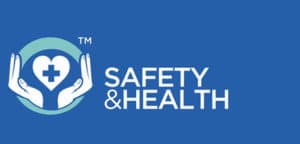 Most of us spend the major part of our lives either away at work or in our homes. We like to think we’re safe in those familiar environments and we seldom spare a thought for anything within them that could affect our health and wellbeing.
Most of us spend the major part of our lives either away at work or in our homes. We like to think we’re safe in those familiar environments and we seldom spare a thought for anything within them that could affect our health and wellbeing.
When we hear the words ‘health and safety’, the usual visions that spring to mind are people falling off ladders, repetitive strain injuries, collapsing scaffolding and the like. We’re less likely to think about stress and the potential damage from unhealthy lifestyles or sleep disorders.
It’s pretty easy to see if the mandatory hard hat, protective eyewear or safety gloves are being worn on the work site, but it’s not so easy to ascertain someone’s state of mind. How can we tell if Shane is worried about being laid off, or if Talia is being hassled by a senior with unreasonable work demands?
Look for the warning signs of stress, both in yourself and in others.
• trouble concentrating
• fatigue
• low morale
• anxiety or irritability
• alcohol or drug use
• overeating or loss of appetite
• workplace incidents
• workplace violence
Warning signs can show themselves in four different ways:
• Physical, such as headaches, high blood pressure and insomnia
• Psychosocial, such as defensiveness, mood swings or depression
• Cognitive, such as decreased attention, forgetfulness, or lowered problem-solving ability
• Behavioural, such as increased use of alcohol or drugs, withdrawal or isolation from others, or poor job performance
Your stress could arise from a single event – say, for example, increased demands for overtime – or from a myriad of origins. It’s likely not only to affect you but the others around you as well. Even if your troubles stem from home, your safety at work could be put at risk.
Stress can lead to accidents or injuries directly by not giving you the control needed to stop any danger to your physical well-being.
At work, major stressors are most likely to be:
• fear of job redundancy,
• layoffs due to an uncertain economy,
• increased demands for overtime due to staff cutbacks
• imminent deadlines
• tough sales or production targets
According to a study from Indiana University’s Kelley School of Business, workers in high-stress jobs who have little control over workflow and other key decisions are at a higher risk of dying early.
Click on the icons below to find out about Safety & Attitude and Safety & Leadership.



